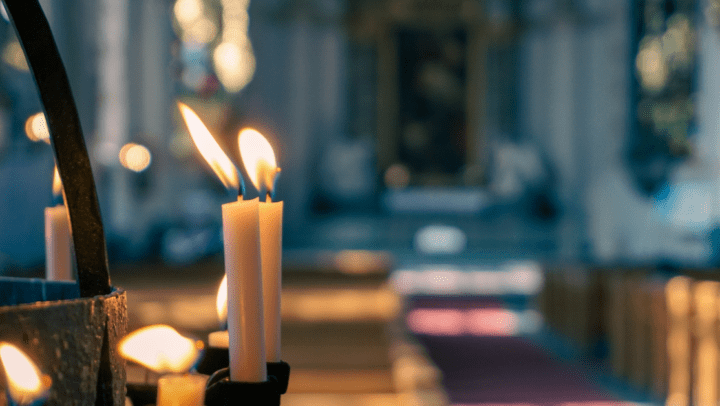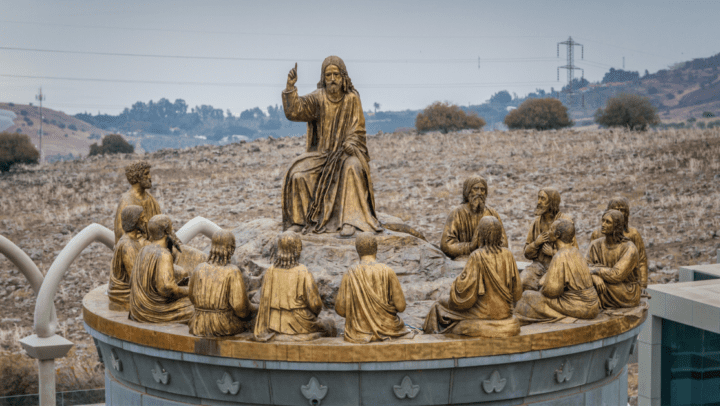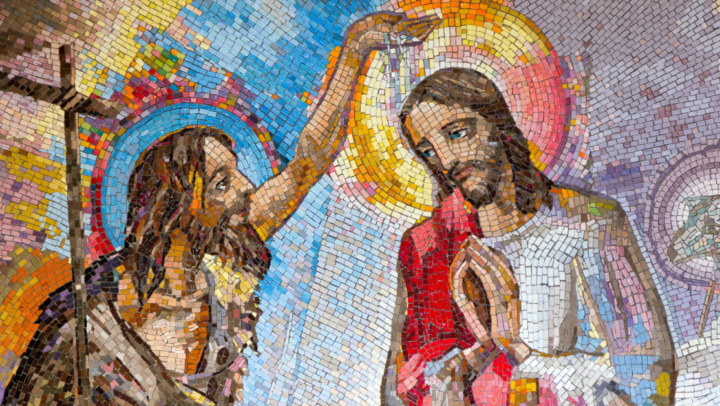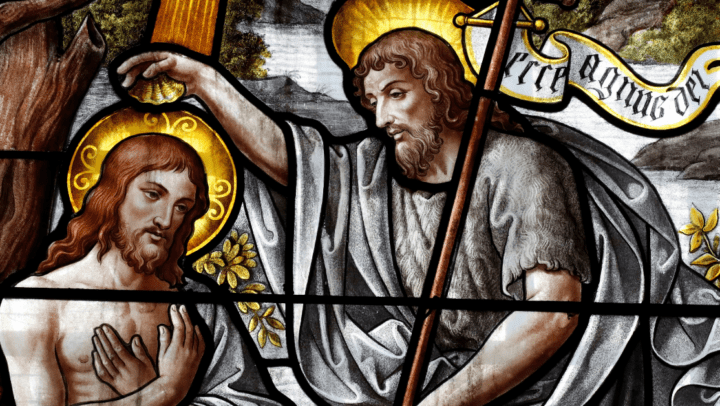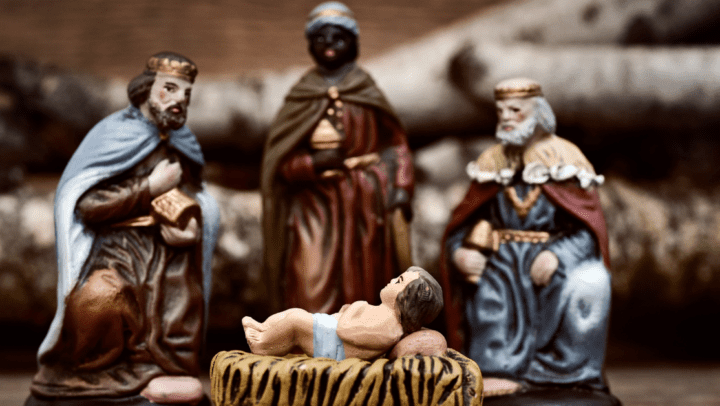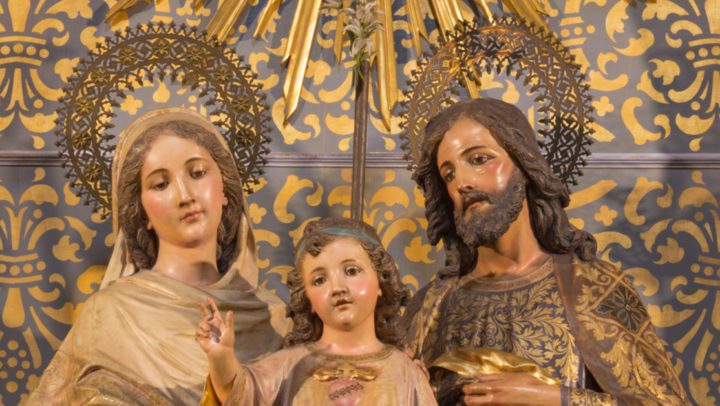Exciting news! Father Bob Warren is now reading his weekly reflections. Click on the headlines below or where it says “read more” under each to read – and now listen to – the latest from Fr. Bob.
You also can receive Fr. Bob’s weekly reflections by email. Click here to sign up.
Fr. Bob’s Homily – Fifth Sunday in Ordinary Time
When we read the morning paper or watch the evening news, the experience can be discouraging. What confronts us is often the worst of humanity: images of death, destruction and chaos.
Fr. Bob’s Homily – Fourth Sunday in Ordinary Time
The Gospel reading today can feel strange, and even unsettling. In the Beatitudes, Jesus seems to turn the world upside down. Instead of praising the successful, the assertive, or the powerful, He tells us that the Kingdom of God is set up to reward the poor, the sad, the meek and the hungry.
Fr. Bob’s Homily – Third Sunday in Ordinary Time
I once read a story about tourists visiting the famous Carlsbad Caverns in New Mexico. While they were deep below the surface in the giant cavern, the lights suddenly went out. Among those trapped in the darkness were two children: an 8-year-old boy and his 5-year-old sister.
Fr. Bob’s Homily – Second Sunday in Ordinary Time
John the Baptist is not the most traditional or charming character in the Gospels. In all likelihood, he would not be on our guest list for a dinner party. His appearance is rugged, clad in camel hair, disheveled with no haircut and a long beard. His message is always loud and unfiltered: “Repent!”
Fr. Bob’s Homily – Baptism of Jesus
The Feast of Christ’s Baptism is quite unique. Some scholars note that the members of the early Church struggled to understand the symbolism of Jesus, the greater, receiving baptism from John, the lesser. It was a total reversal of what many expected. John himself voices this concern to Jesus. He tells Him, “It should be You baptizing me.”
Fr. Bob’s Homily – Epiphany of the Lord
This Gospel reminds us that the movement of humankind towards God always begins with God Himself. In choosing to enter our world, God embraced direct involvement rather than untouchable distance.
Fr. Bob’s Homily – Feast of the Holy Family
In June of 1947, a famous book was published titled “The Diary of a Young Girl.” It is known to most of us as, “The Diary of Anne Frank.” Today, it’s read in countless middle schools across the world.
Fr. Bob’s Thoughts for the Fourth Week of Advent
In our society, and in many others, lighted candles are used when one or more of three things are present: joy, devotion and love. We light candles at birthday parties, weddings, anniversaries, and, of course, at Mass each week.
Fr. Bob’s Homily – Fourth Sunday of Advent
Today’s Gospel focuses on Joseph, the quiet, steadfast figure who we often call the Foster Father of Jesus. He is sometimes the most overlooked person in the Christmas story, yet his faith and obedience made all the difference.
Fr. Bob’s Thoughts for the Third Week of Advent
During the 1960s and early 1970s, the “peace sign” seemed to be everywhere. It appeared on T-shirts, jewelry, flags. It was even painted on walls and stitched onto blue jeans. It’s a simple design – a circle divided by lines forming a kind of broken cross. It became a symbol of protest, hope and unity. The sign made a comeback in the 1990s, but few people today know its true origin or intended meaning.
Fr. Bob’s Homily – Third Sunday of Advent
John the Baptist stands as the commanding figure in today’s Gospel. He is a man sure of his mission, ignited with purpose. He is God’s prophet, bold and confident in his message. Strong and fearless, John acts without hesitation.
Fr. Bob’s Thoughts for the Second Week of Advent
One phrase we often hear during the Christmas season is, “It is more blessed to give than to receive.” Interestingly, this line doesn’t appear in any of the Gospels, but St. Paul tells us that Jesus Himself taught this idea.
Fr. Bob’s Homily – Second Sunday of Advent
Years ago, a newspaper columnist reported on an unusual story about people trying to remove unwanted tattoos. Many of the people quoted in the article were young men and women, regretting the designs made on their skin in permanent ink, that once seemed like a good idea. They soon discovered that tattoo removal was possible – although it was painful, costly and often left impressions that never completely faded.
Fr. Bob’s Thoughts for the First Week of Advent
Horatio Alger was an author known for his rags-to-riches tales. He wrote stories about how the underdog rises to success through goodwill, hard work and determination. People have always been drawn to these kinds of stories: when the misfit becomes the star quarterback on the football team, or when the understudy takes the stage and steals the show.
Fr. Bob’s Homily – First Sunday of Advent
I once heard a story about a group of third graders who were asked to draw a picture based on the sentence: “He will come again in glory.” One child drew Jesus stepping off a jumbo jet onto a red carpet, with photographers flashing their cameras. Another pictured Him riding in a limousine with a police escort.

